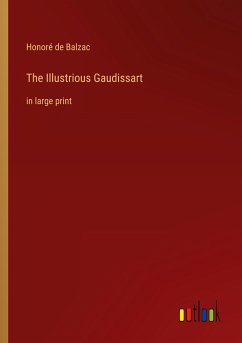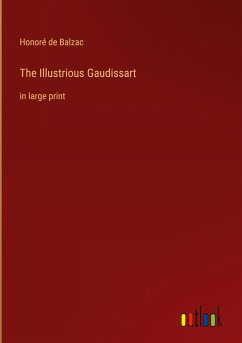L'illustre Gaudissart (English "The Illustrious Gaudissart") is a short story by Honoré de Balzac. It was published in 1833 and is one of the Scènes de la vie de province of La Comédie humaine. Felix Gaudissart is a successful and ambitious travelling salesman, based in Paris. He is nicknamed "The Illustrious Gaudissart". He has previously sold clothing and hats, but at the start of the story he has also taken up selling life insurance and subscriptions to newspapers. The latter include newspapers advocating Saint-Simonianism and republicanism, and he learns the Saint-Simonian doctrine without having any belief in it.
Bitte wählen Sie Ihr Anliegen aus.
Rechnungen
Retourenschein anfordern
Bestellstatus
Storno



![The Duchesse De Langeais. With An Episode Under The Terror, The Illustrious Gaudissart [&c. Tr. By K.p. Wormeley] The Duchesse De Langeais. With An Episode Under The Terror, The Illustrious Gaudissart [&c. Tr. By K.p. Wormeley]](https://bilder.buecher.de/produkte/68/68838/68838231m.jpg)





